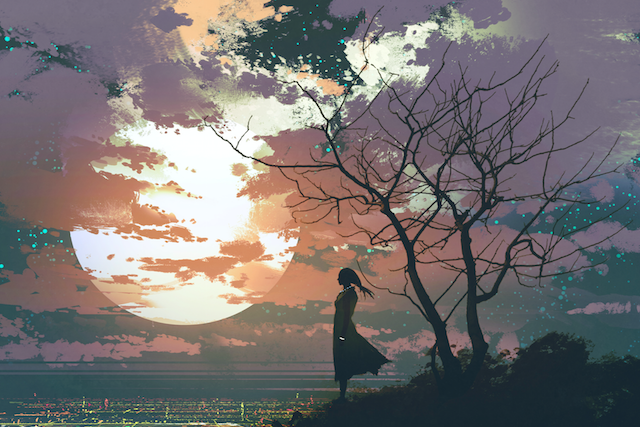
“To be, or not to be—that is the question.” ~William Shakespeare
This Sunday marks one year since my friend took his own life. It both is and isn’t a big deal. It is in the sense that we like to commemorate things: one-year-old, one year at a new job, one year since 9-11, one year sober.
It isn’t in the sense that my to-do list that day includes “thaw and marinate chicken.”
When a person takes his own life, it creates a cosmic shift in the universe.
It also doesn’t.
The first few days after a person takes his own life are the weirdest. He was here. Now he’s not.
The disappearance of a human being is beyond comprehension. A whole human vanishes. Six feet one inch tall. One hundred and sixty pounds. Blue eyes. Salty blonde hair. Brilliant veterinarian. Father of two young daughters. Husband. Son. Friend.
Perhaps the coroner has determined that the cause of death was self-inflicted gunshot wound. But it is equally as believable that he took a last minute trip. He had to go unexpectedly, but he will be back. He is out running errands. His flight was delayed.
But as time passes and the person doesn’t come walking up the drive and through the door, his favorite hat bee-bopping up and down with steady gait in the yard, deep sadness swells around the supernatural weirdness of it all. The sadness makes it difficult to breath, at times. It is life altering and universe shifting. It is monumental.
Except that it isn’t. No matter how deep our grief, schools continue to meet. Clients continue to call. Crimes continue to be committed. Babies continue to be born. Cars still need oil changes.
Neighbors still drive out of their driveways in the mornings. They still look carefully before exiting their driveways into the street. They still stop to check their mail, which keeps coming by the way, even when someone we love is suddenly gone.
Just as our own serious injuries may frantically send us to the ER, once we are sitting in the waiting area, we look around and realize we are merely one of many. Death is plain.
The ordinariness of it all can make it seem like our person didn’t mean very much. Sometimes it feels like he never even existed.
Except that he did. His half-used soap bar remains in the shower. His razor sits on the counter with tiny hairs embedded in its blades. His cell phone rests on the nightstand with three unread text messages. His bills sit an unopened still-life on the kitchen counter. His half eaten banana slowly turns brown.
His stuff suggests he was real. That he was here despite his sudden disappearance.
As his loved ones tasked with cleaning up what he left behind begin to eradicate the trail he left of his final days, when the soap has cracked and the fruit has become rotten, it can feel as though all evidence of his existence has vanished.
Still, even if every shred of evidence of a person’s existence is lit on fire and turned to ash, our memories, or experiences, and our love for people who disappear will live on. Those memories, intangible ghosts in our minds that cannot be touched, seen, or proven, both are and aren’t real.
For me, the best space within which to honor those we have lost is to live in the in-between, a place where they both did and did not exist. Where they both did and did not die. Where their loss both is and is not extraordinary.
This Sunday, I plan to commemorate the day by getting what is and is not meaningful: a tattoo. The experience will and will not be important. It will be important in the sense that I am getting a semi-colon tattoo to represent mental illness and suicide awareness in honor of my dear friend. It isn’t in the sense that millions of people get tattoos every day.
This Sunday, I will be sad. The sadness that comes with suicide doesn’t ever truly disappear. Because it is always there, I suppose the sadness left over after a person takes his own life both is and isn’t important. It is in the sense that it lives down low beneath the joy, laughter, excitement, and other emotions that continue to be felt despite the life altering loss.
But it isn’t all that extraordinary either. Sadness is not exclusive to me. And despite my sadness, this Sunday will be regular. We will laugh when it makes sense to laugh. We will watch our usual TV shows. We will wash laundry for the week. We will return emails. We will grade papers.
When someone we love dies, we swear we will never take our lives for granted. Every moment will count; every day will be lived fully. Similarly, we swear we will never take for granted our friends, our spouses, our children. We will keep our eyes on the big picture. We won’t sweat the small stuff. We will stop drinking, stop smoking, stop yelling, start meditating.
Except when we don’t. And that is okay. Because although we aim to see the death of our loved ones as a monumental turning point in our lives—one that will push us to live our best life—the fact also remains that life is ordinary. Death is common. Our health will fail one way or another. We will yell again. We will take things for granted.
Because the finite nature of our capacity for understanding pushes us into the realm of “either/or,” we believe that we either appreciate our lives, or we don’t. We are either happy or we are sad. We are either healthy or we are sick. We are either alive or we are dead.
I suspect that, if we could hear the voices of ghosts, they’d tell us that our finite view causes us much suffering. That Hamlet’s contemplation of his own being when he asks “to be or not to be?” is the wrong question with no real answer. For even when one takes his own life, he does not cease “to be.”
After all, my friend is gone, but his memory lives on. I can see his sweet spirit in the eyes of his children. I can feel his love for nature as the wind blows through the leaves of trees, dancing alive. He is here, and he is not. His ashes will return to the earthen ground from which he came. Perhaps he will become part of a cloud, a stream. Perhaps his remains will enrich the earth that grows the tea we drink.
The sooner we accept that the universe is infinite and that our capacity to understand is finite (despite whatever technological advances we believe humans have made), the sooner we will find the peace that can only come from living outside of the duality of either/or.
For me, I accept that my dear friend died because he took his own life. I also accept that he did not die.
This sort of wild, fantastical thinking is not the kind one might see in popular culture movies depicting communication with the deceased in the afterlife. It is the kind of thinking that arises from acceptance of the infinitesimal universe that is beyond our own finite understanding. Once we accept this truth, the spirit of those we have lost is freed beyond the grave.
About Ashley Sillay
Ashley Sillay is a criminal defense attorney and instructor of legal writing in Macon, Georgia. She enjoys the ocean, vodka, and family. She writes this article in honor of her dear friend, Russ Edwards, a beloved and gifted veterinarian, who passed away on April 30, 2016. She hopes to destigmatize grief and loss one person at a time.













 Though I run this site, it is not mine. It's ours. It's not about me. It's about us. Your stories and your wisdom are just as meaningful as mine.
Though I run this site, it is not mine. It's ours. It's not about me. It's about us. Your stories and your wisdom are just as meaningful as mine. 